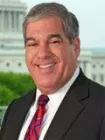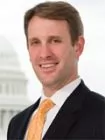In a unanimous decision issued on May 26, 2015, the United
States Supreme Court closed the window that several lower courts
had opened for bringing False Claims Act ("FCA") actions,
finding that the Wartime Suspension Limitations Act
("WSLA"), 18 U.S.C. §3287, applies only to criminal
offenses and not, as urged by the U.S. government (the
"Government") and plaintiffs' bar, to civil FCA
claims. But, the Court also held that the FCA's "first to
file" rule keeps new claims out of court only while related,
previously filed claims are still alive. The case is Kellogg
Brown & Root Services, Inc. et al. v. United States ex rel.
Carter, 575 US __ (May 26, 2015).
Two components of the FCA were before the Court. The first, the
FCA's statute of limitations, provides that a qui tam
action must be brought within six years of a violation or within
three years of the date by which the United States should have
known about a violation. In no circumstances, however, may that
suit be brought more than 10 years after the date of a violation.
41 U.S.C. §3731(b). This statute arguably intersects with the
WSLA, which, during wartime, suspends "the running of any
statute of limitations applicable to any offense ...
involving fraud or attempted fraud against the United States or any
agency thereof." 18 U.S.C. §3287 (emphasis added). The
Court addressed whether "offense" includes civil
claims.1
The second provision, the "first-to-file" bar, states
that "[w]hen a person brings an action under [the FCA], no
person other than the Government may intervene or bring a related
action based on the facts underlying the pending
action." 31 U.S.C. §3730(b)(5) (emphasis added). The
Court addressed whether "pending" includes cases that
have concluded.
Background
In 2006, Benjamin Carter, a former Kellogg, Brown &
Root Services, Inc. ("KBR") employee, brought a qui
tam action ("Carter I") against KBR,
claiming that KBR had fraudulently billed the Government for water
purification services in Iraq. The Government declined to intervene
in Carter's qui tam action.
Carter's initial claim was followed by a complicated,
"remarkable" sequence of dismissals and refilings of his
complaint.2 A first district court decision denied
Carter's claims, holding that the action was related to an
action pending elsewhere, and thus barred by the FCA's
first-to-file rule. Carter appealed that decision, and following a
dismissal of the related action, Carter filed again
("Carter II"). The district court again
dismissed the suit, holding that it was barred by the first-to-file
rule as the appeal of Carter I was still pending.
Undeterred, Carter dismissed his appeal in Carter I, only
to file a further action ("Carter III") brought
more than six years after the alleged KBR fraud. Carter's third
attempt was dismissed, this time with prejudice. The district court
invoked the first-to-file rule. The district court also held that
the WSLA applied only to criminal charges and thus did not preserve
Carter's claims brought beyond the FCA's traditional
statute of limitations.
In a 2–1 decision, the Fourth Circuit reversed, holding that
although the earlier case may have been pending when Carter filed
Carter III, his claims were not time-barred—because
the WSLA did apply—and that the FCA's first-to-file bar
did not apply to a new complaint if the previous, related complaint
was dismissed (whether or not on the merits).3 Carter
was free to refile and proceed. KBR petitioned for certiorari from
the Supreme Court, which was granted, over the objection of the
United States.
For Whom the WSLA Tolls
"When the United States is at war or Congress has enacted a
specific authorization for the use of the Armed Forces," the
WSLA suspends "the running of any statute of limitations
applicable to any offense ... involving fraud or attempted
fraud against the United States or any agency thereof." 18
U.S.C. §3287 (emphasis added). The Court considered the scope
of "any offense," specifically whether the phrase
encompassed civil claims involving fraud against the Government, or
whether it was limited to crimes.
Respondents relied in part on a revision to the WSLA that removed
the phrase "now indictable" from the description of
"any offense." This change, they argued, reflected a
determination by Congress to bring under the statute both civil and
criminal offenses. The Court considered and rejected that argument,
holding that "the text, structure, and history of the Act
applies only to criminal offenses."4
First, the Court examined the definition of "offense."
It noted that the term "is most commonly used to refer to
crimes."5 While "offense" is occasionally
invoked to include civil claims, the Court noted that nowhere in
Title 18 (the Section encompassing the WSLA) was it used so
broadly.
Second, the Court considered the meaning of the removal of
"now indictable" from the statute as a modifier to
"offense." It concluded that when Congress amended the
WSLA in 1944 to remove the phrase, it intended only to apply the
WSLA prospectively, to deal with both past fraud and future fraud.
The Court rejected the argument that removal of "now
indictable" served to alter the statute as broadly as the
respondents and the United States argued, noting that
"[f]undamental changes in the scope of a statute are not
typically accomplished with so subtle a
move."6
Finally, the Court noted that even if there were some ambiguity in
the WSLA, precedent instructed it to resolve that ambiguity
"in favor of repose."7 For this reason as
well, the Court held, civil claims brought outside the FCA's
statute of limitation are not to be saved by application of the
WSLA.
First-to-File, or One-Case-at-a-Time?
The Court also considered the scope of the FCA's
"first-to-file" provision—specifically, the proper
interpretation of the term "pending" in §3730(b)(5).
The original purpose of the rule was to discourage
"opportunistic behavior" by barring a series of qui
tam actions once the Government had been notified of potential
fraud.8
The key term at issue for the Court was "pending."
Petitioner KBR argued that, read in context, the bar applies when
any action is filed. From that point forward, "no person other
than the Government may bring a related Action."9
For KBR, the word "pending" served merely to distinguish
"between the two different actions mentioned in the statute:
the 'earlier-filed action' (which is 'pending' from
the time it is filed) and any 'later-filed action' (which,
by definition, was not 'pending' when the first-filed case
was filed)."10 "Pending" should not be
read merely to provide a temporal limitation on when a related
action can be filed but, rather, to foreclose all claims apart from
the Government's after facts have been made public through the
filing of an action.
The Fourth Circuit, however, affirmed the "temporal
limit" that effectively upends the FCA's first-to-file
bar, leading it to function instead as a
"one-case-at-a-time" rule. It thus interpreted
the provision to allow relators to file duplicative lawsuits, as
long as no two lawsuits were pending at the same time.
Relators are permitted to bring another duplicative
suit—even if a prior suit was based on the same
facts—once the prior suit is no longer pending. Thus,
according to the Fourth Circuit, the FCA will allow actions
alleging the same material elements of fraud to proceed.
The Supreme Court, limiting itself to the plain meaning of the
text, agreed with the Fourth Circuit's interpretation. The
Court noted that the term "pending" means simply
"[r]emaining undecided; awaiting decision."11
The Court wryly suggested that KBR's use of the term
"pending" would create bizarre results, so that even
"the trial of Socrates" was still a "pending"
matter (at least for purposes of the FCA).12
Id. at 12. This interpretation, the Court held, did not
comport with any known usage of the term.
The Court also questioned why, if it adopted KBR's
interpretation of "pending," "would Congress want
the abandonment of an earlier suit to bar a later potentially
successful suit that might result in a large recovery for the
Government."13
The first-to-file rule, according to the Court, bars a later suit
only while the earlier suit remains undecided. But once the earlier
suit is dismissed, the later suit can proceed. The Court held that
the dismissal with prejudice of Carter's live claim was an
error and remanded the case for further proceedings.
Under this reasoning, whistleblowers would be allowed to file
lawsuits alleging fraud, even when similar lawsuits had already
been filed and dismissed for reasons unrelated to the merits of the
case. Should defendants find themselves inundated with related
cases filed one after another, there may be other procedural limits
available. Justice Alito, without opining on the issue,
acknowledged in dicta that the doctrine of claim
preclusion may protect defendants from duplicative
suits.14 In FCA cases decided on the merits, claim
preclusion may arise as the United States may be bound by a
previously issued judgment, whether or not it participated in the
case. Defendants can also invoke the limits of collateral estoppel
and the FCA's public disclosure bar, if they are faced with a
torrent of suits with similar allegations. See 31 U.S.C.
§3730(e). (KBR, in fact, raised the public disclosure bar as
an additional defense in the lower courts, and it remains on
remand.) Finally, if the federal government itself initiates
its own action to remedy alleged fraud, the FCA prohibits a later
qui tam action based on the same allegations.
The Carter decision affects several critical issues
regarding FCAlitigation. While the Court's ruling on the
"first to file" issue restricts the utility of that
defense in certain situations, the Court's unequivocal
rejection of efforts to extend the WSLA to civil cases overturns a
trend at the district court level and provides welcome relief from
aggressive efforts to eviscerate the statute of limitations as an
effective defense in FCA cases.
Footnotes
1 Kellogg Brown & Root Services, Inc. et al. v. United States ex rel. Carter, 575 U.S. __ (2015) (No. 12-1497).
2 Id. at 3.
3 United States ex rel. Carter v. Halliburton Co., 710 F.3d 171 (4th Cir. 2013).
4 Carter, 575 U.S. __ (2015) (No. 12-1497) at 10.
5 Id. at 7.
6 Id. at 8.
7 Id. at 10.
8 United States ex. rel. Hampton v. Columbia/HCA Healthcare Corp., 318 F.3d 214, 217 (D.C. Cir. 2003).
9 31 U.S.C. §3730(b)(5).
10 Brief for Petitioners at 44, Kellogg Brown & Root, Inc. et al. v. United States ex rel. Carter, 575 U.S. ___ (2015) (No. 12-1497).
11 Kellogg Brown & Root Services, Inc. et al. v. United States ex rel. Carter, 575 U.S. __, *11 (2015) (internal citation omitted).
12 Id. at 12.
13 Id.
14 Id. at 12-13.
The content of this article is intended to provide a general guide to the subject matter. Specialist advice should be sought about your specific circumstances.












